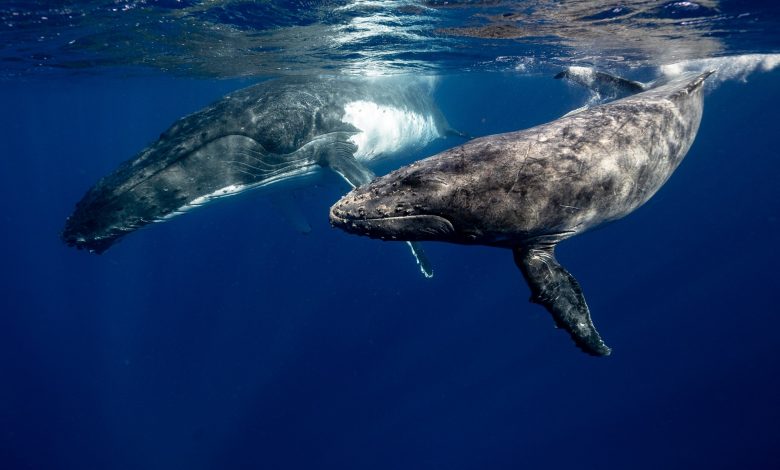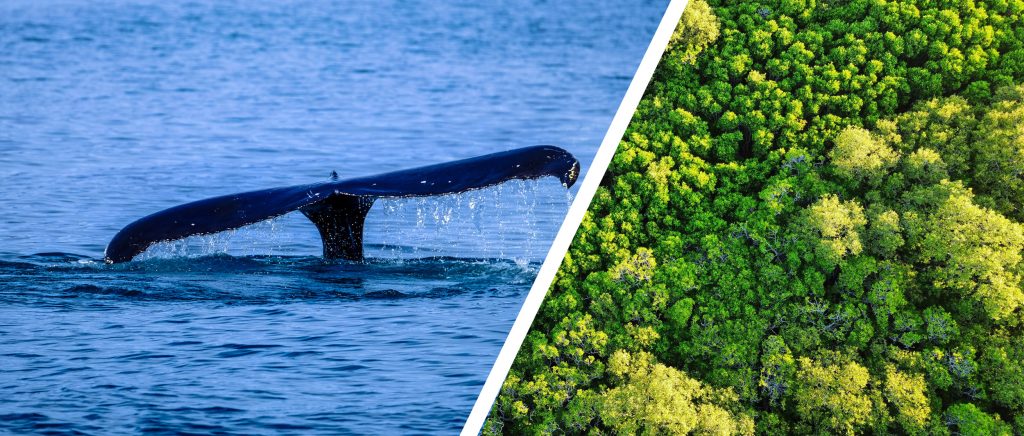Whales are more efficient than trees at storing CO2

This is an assertion that is likely to startle the defenders of the planet and the researchers who study global warming. And yet, according to some very serious research, this study claiming that whales are more efficient than trees at storing CO2 is true!
A pioneering study on the subject
Her name is Anaëlle Durfort and the work of this researcher at the University of Montpellier was published in the prestigious Royal Society journal “Proceedings of the Royal Society B”. Greene and Pershing had already attempted to study the link between whales and climate in a study published in 2004, but never before had such a study been conducted in order to make projections for the future.

Amaonian forest vs. whale population
The first thing that strikes one’s mind is the considerable quantities of CO2 that a whale can absorb. When a tree absorbs 20 kg of CO2 per year, a whale absorbs about 33 tons, the equivalent of a forest of 1,650 trees!
And even though a tree can live for several hundred years, the overall average tree rarely exceeds 200 years. The whale, although living less long than a tree, has a considerable advantage over trees: when it dies, the CO2 it has absorbed and stored in its carcass and tissue does not go directly back into the atmosphere, as can happen with wood when it is burned. Most of the time, the whale’s carcass sinks into the abyss and becomes part of the sediments where it remains trapped for thousands of years.
The study shows that in the 19th century, whales sequestered 0.4 megatons of carbon and that in 1972 this quantity had fallen to 0.06 megatons, i.e. about 7 times less than in the previous century.
It is therefore urgent to recognize the preponderant role of whales in the capture of CO2.
Whales, a ray of hope for humanity?
It’s only a short step from there to seeing the whale as the saviour of humanity. In fact, various awareness campaigns and bans on whaling have allowed humpback whale populations to regain their original balance in recent years. Indeed, a study published by Dr. Kirsten Thompson in 2020 showed that the South Atlantic humpback whale population, which in 1830 was estimated at 27,000 individuals and had declined to 450 individuals by 1950, had recovered to an estimated total of 25,000 individuals, or 93 percent of their population in the 19th century!
Let’s hope that actions taken in favour of other types of whales can have the same effects and, why not, allow for the capture of an important part of the CO2 produced by human industrial activities!







